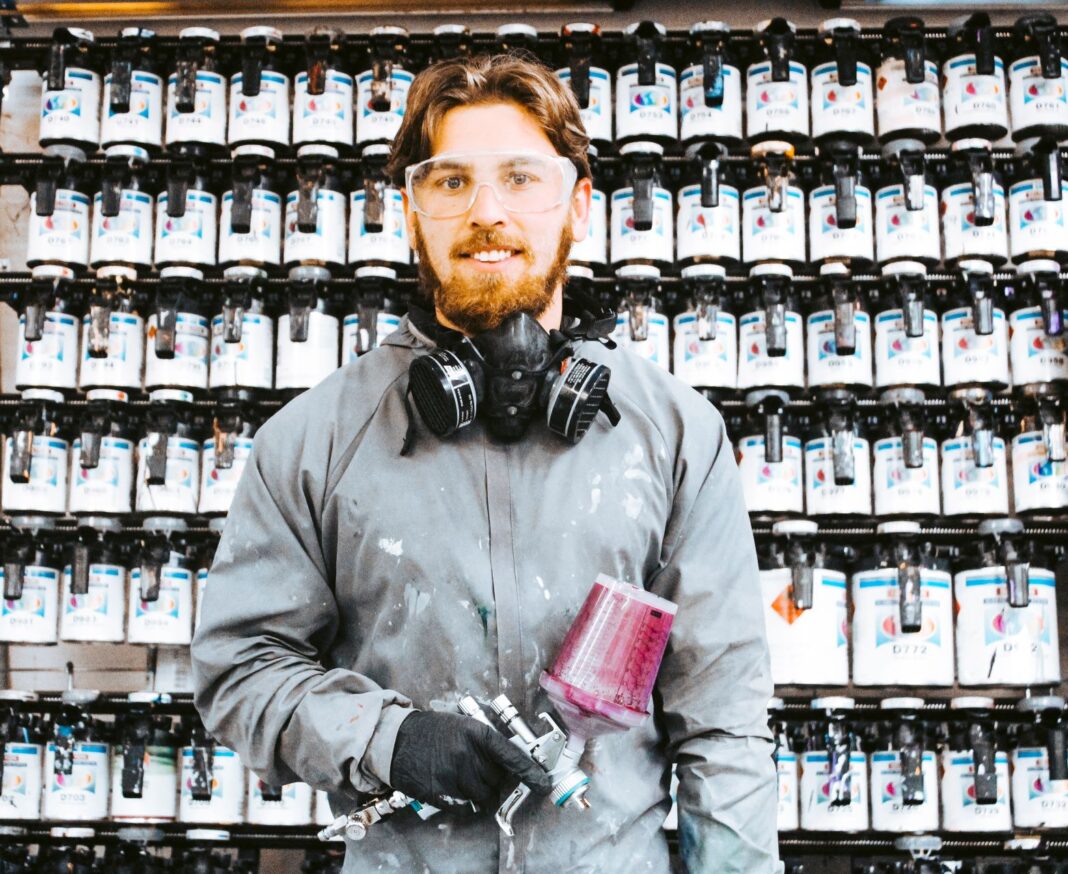While the COVID-19 pandemic shutdown has put studies on hold for myriad students across the world, apprentices in the CIT Automotive Refinishing Department at Fyshwick were able to continue ticking off practical assessments in the workplace.
This was due to both the mass quantity of work that overwhelmed their workplaces following the January hailstorm and a quick move to remote assessment during the COVID-19 shutdown, aided largely by CIT Automotive Refinishing teacher, Adrian Gibbons.
“When the hailstorm hit, some shops were completely overwhelmed. There are still customers that have got to wait eight months to get their cars repaired,” Mr Gibbons told Canberra Daily.
When COVID-19 restrictions led to CIT closing their campuses, Mr Gibbons developed very clear paperwork to enable workplaces to collect evidence of completed work by the students, which would then be sent to CIT for formal assessment.
Under normal circumstances, at least 90% of an automotive refinishing apprenticeship is done practically through workplace experience.
“I developed the paperwork which outlined what evidence they needed to collect, how much they needed to collect, what it needs to show to meet the criteria.
“I gave the apprentices and shops the option to continue moving forward gathering evidence to use as their practical assessment.”
Mr Gibbons said the capacity to complete assessment off-campus was more a priority for students further along in their apprenticeship due to complete their studies this year.
“When I’ve got stage three students that are due to finish their studies and not return to CIT at the end of this year, it got to a point of how do we keep them moving,” he said.
“Some of them found it a bit difficult because it’s so specific … some shops don’t necessarily do that work regularly.
“Those criteria are there for a reason, we need to see that the apprentices, as they go through, can put it all together and do larger and larger jobs … there’s not much leeway in that.”
Moving forward, Mr Gibbons thinks there will be space for more practical assessment to be completed in the workplace; however, given the specificity of some of the work required, some contact time will remain necessary.
“Once they get into the hang of it, most or a lot of the students will start collecting evidence at work.
“When they enroll into a subject and read what’s required, they’ll know if they do that work anyway. They will just come in and do their theory and their theory exams under supervision.
“The employers will like that because then they’re at work more, they’re more productive. I come from managing a panel shop before I came here and that makes sense to me too,” he said.
“Why am I going to send an apprentice that I’m paying a wage who would normally be in the shop working and learning and training to CIT to get assessed on something that they do every day here?”


